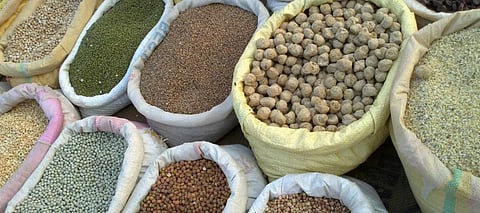COVID-19: Centre must make foodgrain distribution universal
India has the highest number of food-insecure people in the world, according to the State of Food Security and Nutrition in the World (SOFI) report, 2020. Food insecurity also increased 3.8 percentage points between 2014 and 2019 in the country, the report added.
The lockdowns during the novel coronavirus disease (COVID-19) pandemic heightened the food crisis for the informal sector workers in India.
The loss of income, acute food shortage and bare access to healthcare during the pandemic has not only turned their lives upside down but also has amplified the deep-rooted structural disparity in our country, several studies have claimed.
During the first wave of COVID-19, migrant labourers made headlines. But in the second, the shortage of vaccines and oxygen cylinders took over the news cycle. Thus, the critical need for food among the poor was left overlooked when it needed an overhaul.
The poor, who were unsure where their next meal would come from, could not even remain home to protect themselves from the contagion.
In Noida slums — an unfolding disaster, a rapid assessment of 70 slums in Noida conducted during the second wave of the pandemic, a non-profit Atmashakti Trust found that 40-50 per cent of the residents had fled to their villages already, leaving only around 7,000 families.
Those who stayed back were mostly dailywagers, autorickshaw drivers, ragpickers and domestic workers. In the absence of awareness, testing and medical facilities, most of the community took to “self-curing” at home when they developed symptoms.
The immediate support these poor people need is food; everything else comes later, the report revealed.
Almost 93 per cent of the total workforce in our country is ‘informal’ and over 22 per cent of India’s total population (65 million) live in urban slums, according to the 2011 Census data and the Economic Survey of 2018-19 report.
Last year, the Union Finance and Corporate Affairs Minister Nirmala Sitharaman announced that the PM Garib Kalyan Anna Yojana will provide an additional five kilograms of foodgrains per person and one kg of dal per family, free of cost every month for the country’s 800 million ration cardholders under the National Food Security Act.
The benefits eluded the informal sector workers who failed to produce necessary documents as they live in temporary sheds in other states where they migrate for work.
What should it mean for the government that a large chunk of India’s underserved population from the informal sector are out of the social security net? It is high time the government made foodgrain distribution universal during the pandemic.
It will essentially help vulnerable populations quell hunger and distress arising out of the pandemic.
Views expressed are the author’s own and don’t necessarily reflect those of Down To Earth


